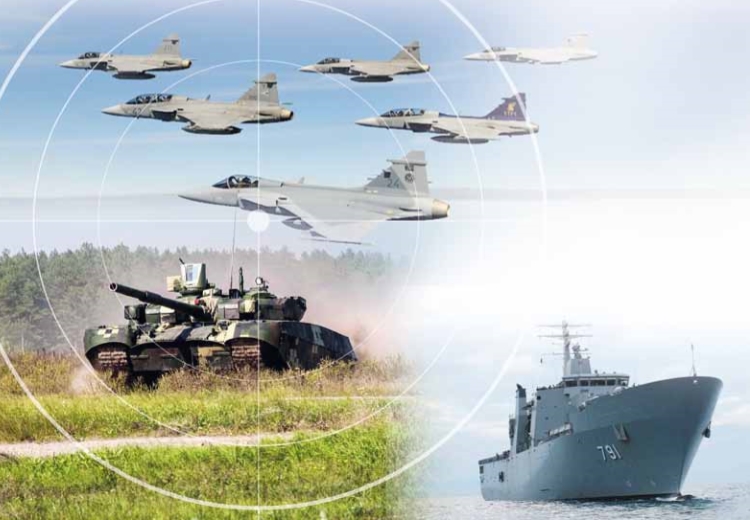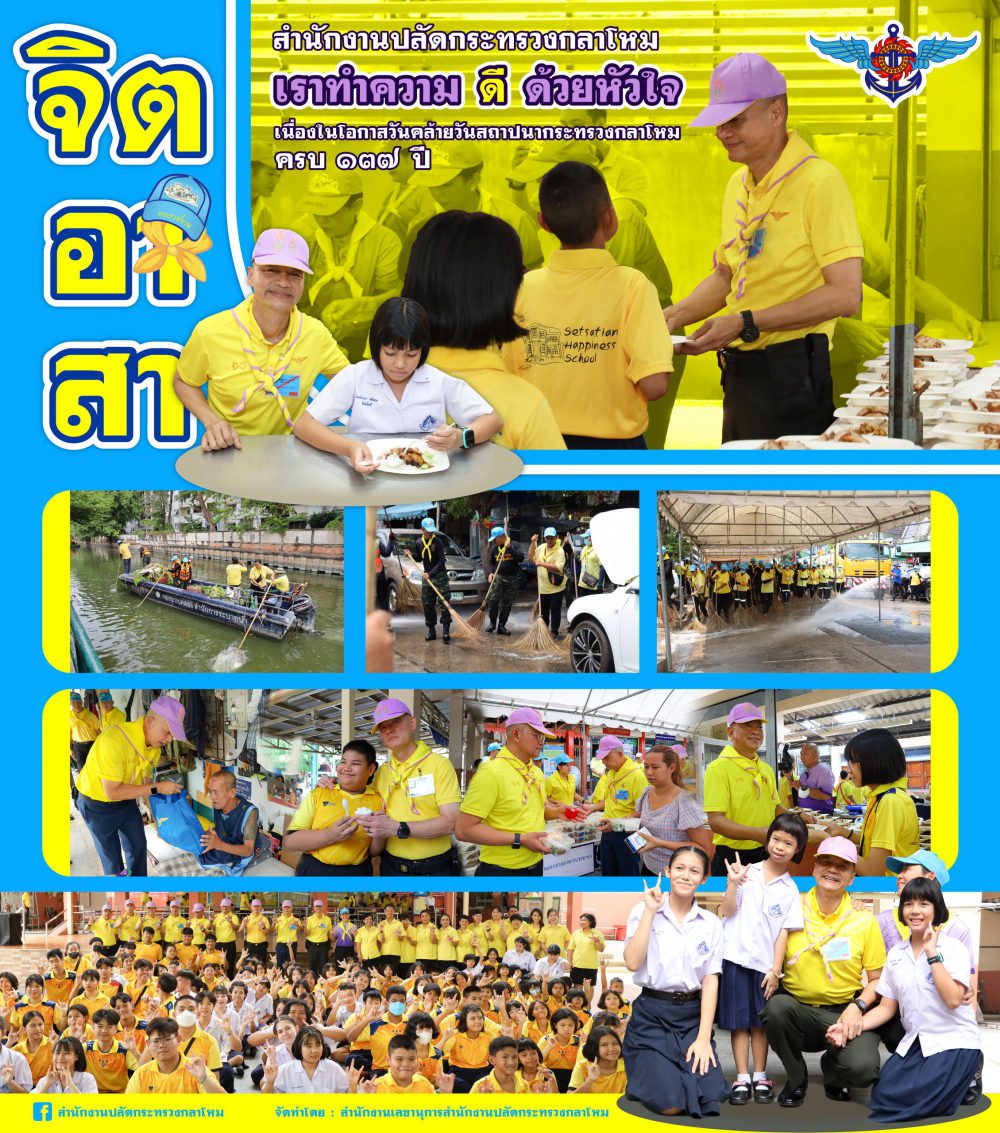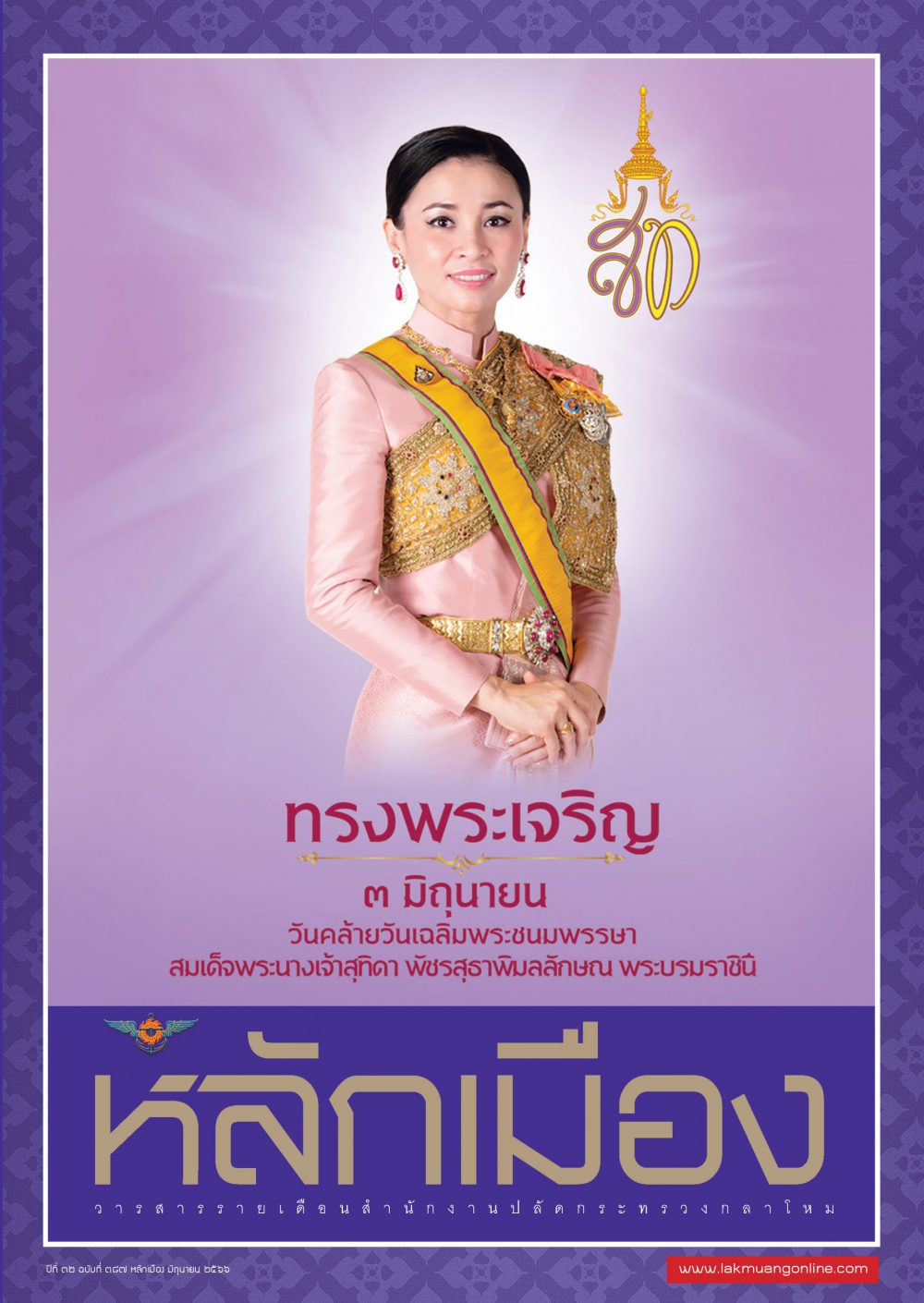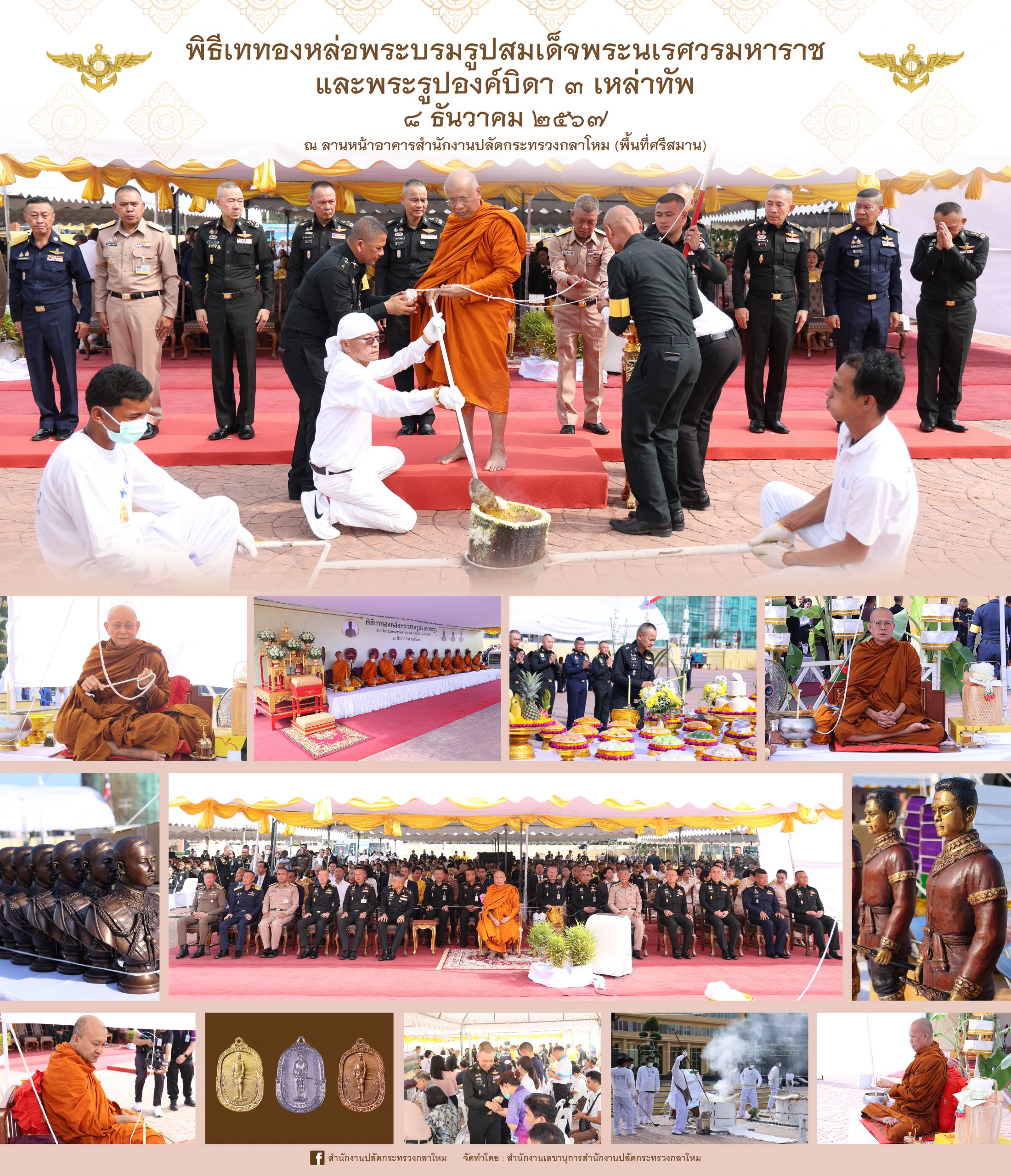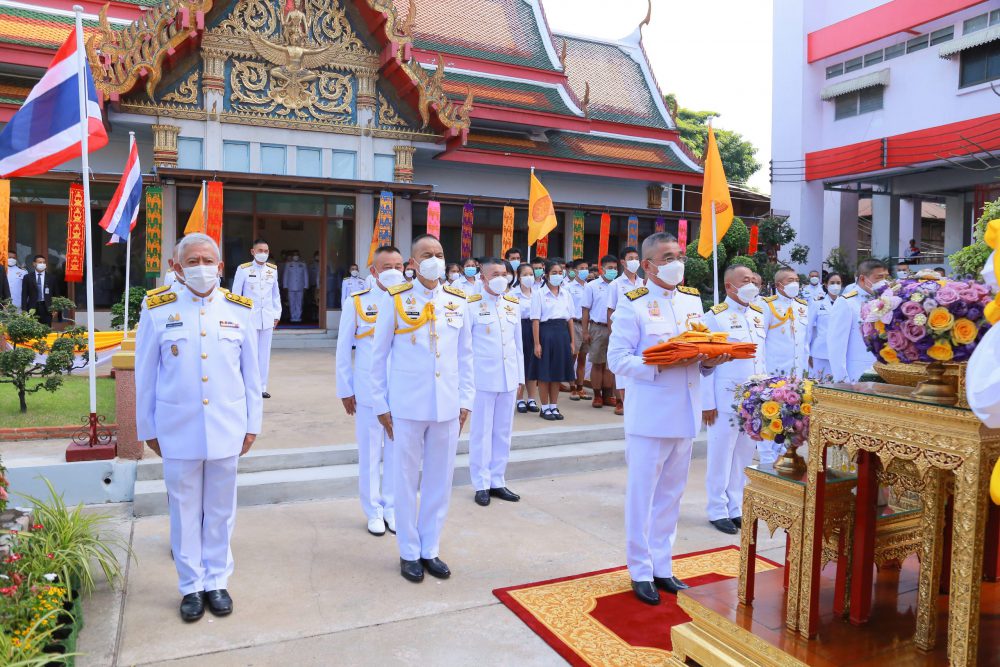วันที่ ๘ เมษายน ๒๔๓๐ ถือได้ว่าเป็นวันสำคัญแห่งกิจการทหารไทยเป็นอย่างยิ่งสืบเนื่องเพราะเป็นวันที่พระบาทสมเด็จพระจุลจอมเกล้าเจ้าอยู่หัว ทรงสถาปนา กรมยุทธนาธิการ (Department of War and Marine) ขึ้นที่บริเวณ โรงทหารหน้า (ปัจจุบันคือศาลาว่าการกลาโหม) จึงนับเป็นจุดเริ่มต้น ของการดำเนินกิจการทหารสมัยใหม่ให้มีความเป็นสากลทัดเทียมนานา อารยประเทศ และรองรับการเผชิญภัยคุกคามจากประเทศมหาอำนาจ ในยุคล่าอาณานิคม ซึ่งในเวลาต่อมา กรมยุทธนาธิการ ได้พัฒนาทั้ง ในเรื่องของส่วนราชการ โครงสร้าง อำนาจหน้าที่ และภารกิจอย่าง ต่อเนื่อง จนเป็นกระทรวงกลาโหมในปัจจุบัน
ตลอดระยะเวลา ๑๒๗ ปี การก้าวเดินของกระทรวงกลาโหมได้ฝ่าฟันปัญหาและสิ่งท้าทายนานัปการตั้งแต่ปัญหาการเมืองที่เกิดขึ้นภายใน ประเทศ หรือสิ่งท้าทายที่เป็นผลกระทบอันเกิดจากปัจจัยภายนอกตลอดระยะเวลา ๑๒๗ ป ีการกา้วเดนิของกระทรวงกลาโหมไดฟ้นัฝา่ ปัญหาและสิ่งท้าทายนานัปการตั้งแต่ปัญหาการเมืองที่เกิดขึ้นภายใน ประเทศ หรือสิ่งท้าทายที่เป็นผลกระทบอันเกิดจากปัจจัยภายนอก
ในปีพุทธศักราช ๒๔๓๓ มีการยกฐานะ กรมยุทธนาธิการขึ้นเป็น กระทรวงยุทธนาธิการ (Ministry of War and Marine) โดยแบ่งส่วน ราชการ ออกเป็น ๒ ฝ่าย กล่าวคือ ฝ่ายพลเรือน ทำหน้าที่ด้านธุรการ การบริหาร และการส่งกำลังบำรุง โดยมี เสนาบดีกระทรวง เป็นผู้บังคับ บัญชา และ ฝ่ายทหาร ทำหน้าที่เป็นส่วนกำลังรบ แบ่งออกเป็น ๒ ส่วน คือ กรมทหารบก และกรมทหารเรือ โดยพระบาทสมเด็จพระเจ้าอยู่หัว ทรงดำรงตำแหน่งจอมทัพ และทรงพระกรุณาโปรดเกล้าฯ ให้ สมเด็จ พระบรมโอรสาธิราชฯ สยามมกุฎราชกุมาร ทรงเป็นองค์รับสนอง พระบรมราชโองการในปีพุทธศักราช ๒๔๓๕ เป็นการปฏิรูประบบราชการเป็นครั้งแรก โดยจัดตั้งกระทรวงขึ้นใหม่ตามภารกิจเพื่อให้เกิดการรวมศูนย์งาน โดย แบ่งออกเป็น ๑๒ กระทรวง ซึ่งมีทั้งกระทรวงกลาโหมและกระทรวง ยุทธนาธิการ แต่ต่อมาในปีเดียวกัน ได้ลดฐานะกระทรวงยุทธนาธิการ ลงเป็น กรมยุทธนาธิการ ซึ่งมีลักษณะพิเศษที่ไม่สังกัดกระทรวงใด โดยทำหน้าที่เป็น องค์กรฝ่ายทหารที่ทำหน้าที่ป้องกันประเทศ
ในปีพุทธศักราช ๒๔๓๗ ได้มีการจัดปันหน้าที่ระหว่างกระทรวง กลาโหม ให้รับผิดชอบราชการทหาร และกระทรวงมหาดไทยให้ รับผิดชอบราชการที่เกี่ยวกับพลเรือน จึงมีการโอนกรมยุทธนาธิการ มาขนึ้สงักดักระทรวงกลาโหม โดยให้กรมยุทธนาธิการ กำกับดุแลกิจการ ทหารบก และกรมทหารเรือ กำกับดูแลกิจการทหารเรือ
ในปีพุทธศักราช ๒๔๕๓ ในรัชสมัยพระบาทสมเด็จพระมงกุฎเกล้า เจ้าอยู่หัว ได้มีการยกฐานะกรมยุทธนาธิการ ขึ้นเป็น กระทรวงกลาโหม มีหน้าที่ดูแลการปกครองเฉพาะกิจการทหารบกพร้อมกับยกฐานะ กรมทหารเรือ ขึ้นเป็น กระทรวงทหารเรือ มีหน้าที่ดูแลการปกครอง เฉพาะกิจการทหารเรือ
ในปีพุทธศักราช ๒๔๗๔ ในรัชสมัยพระบาทสมเด็จพระปกเกล้า เจ้าอยู่หัว ได้มีการรวม กระทรวงทหารเรือ กับกระทรวงทหารบกหรือ กระทรวงกลาโหม เข้าเป็นกระทรวงเดียวกัน ภายใต้นาม กระทรวง กลาโหม
ภายหลังเปลี่ยนแปลงการปกครองในปีพุทธศักราช ๒๔๗๕ ได้มีการ ตราพระราชบัญญัติเกี่ยวกับราชการกระทรวงกลาโหมเป็นครั้งแรกใช้ ชื่อว่า พระราชบัญญัติจัดระเบียบป้องกันราชอาณาจักร พุทธศักราช ๒๔๗๖ เป็นเสมือนกฎหมายแม่บทของกระทรวงกลาโหมและกิจการ ทหารไทย ซึ่งในเวลาต่อมาได้มีการพัฒนาจนมาเป็น พระราชบัญญัติ จัดระเบียบราชการกระทรวงกลาโหม พุทธศักราช ๒๕๕๑ และ ฉบับที่ ๒ พุทธศักราช ๒๕๕๖
ทั้งนี้ ปัจจุบันกระทรวงกลาโหมเป็นกระทรวงที่มีภารกิจอันสำคัญใน เรื่องของการป้องกันประเทศและบริหารกิจการทหาร อันประกอบด้วย
(๑) พิทักษ์รักษาเอกราชและความมั่นคงแห่งราชอาณาจักรจากภัย คุกคามทั้งภายนอกและภายในราชอาณาจักร ปราบปรามการกบฏและ การจลาจล โดยจัดให้มีและใช้กำลังทหารตามที่รัฐธรรมนูญแห่งราช อาณาจักรไทยหรือตามที่มีกฎหมายกำหนด
(๒) พิทักษ์รักษา ปกป้องสถาบันพระมหากษัตริย์ ตลอดจนสนับสนุนภารกิจของสถาบันพระมหากษัตริย์
(๓) ปกป้อง พิทักษ์รักษาผลประโยชน์แห่งชาติและ การปกครองระบอบประชาธิปไตยอันมีพระมหากษัตริย์ทรงเป็น ประมุข พัฒนาประเทศเพื่อความมั่นคงตลอดจนสนับสนุนภารกิจอื่น ของรัฐในการพัฒนาประเทศ การป้องกันและแก้ไขปัญหาจากภัยพิบัติ และการช่วยเหลือประชาชน
(๔) ศึกษา วิจัย พัฒนา และดำเนินการด้านอุตสาหกรรมป้องกัน ประเทศและพลังงานทหาร ด้านวิทยาศาสตร์และเทคโนโลยีป้องกัน ประเทศ และด้านกิจการอวกาศเทคโนโลยีสารสนเทศและการสื่อสาร ทั้งนี้ เพื่อสนับสนุนภารกิจของกระทรวงกลาโหมและความมั่นคงของ ประเทศ
(๕) ปฏิบัติการอื่นที่เป็นการปฏิบัติการทางทหารนอกเหนือจาก สงครามเพื่อความมั่นคงแห่งราชอาณาจักร หรือปฏิบัติการอื่นใด ทั้งนี้ ตามที่มีกฎหมายกำหนดหรือตามมติคณะรัฐมนตรี
โดยมีการจัดส่วนราชการที่สำคัญออกเป็น สำนักงานรัฐมนตร ี สำนักงานปลัดกระทรวง กรมราชองครักษ์ หน่วยบัญชาการถวายความ ปลอดภัยรักษาพระองค์ และกองทัพไทย (ซึ่งมีส่วนราชการในสังกัด กล่าวคือ กองบัญชาการกองทัพไทย กองทัพบก กองทัพเรือ กองทัพ อากาศ และส่วนราชการอื่นตามที่กำหนดโดยพระราชกฤษฎีกา)
จึงกล่าวได้ว่า กิจการทหารของไทย มีวิวัฒนาการอย่างต่อเนื่อง และมีการปรับปรุงเปลี่ยนแปลงเพื่อความเหมาะสมสอดรับกับภารกิจ ของทหารและสภาพแวดล้อมในแต่ละยุค ตลอดจน พัฒนาตัวเองให้ ทัดเทียมนานาอารยประเทศ เพื่อการปกป้องเอกราช อธิปไตยของชาติ ทตี่อ้งเผชญิภยัคกุคามอนัรา้ยแรงจากภายนอกประเทศทมี่แีสนยานภุาพ ที่เหนือกว่าทุกด้าน ไม่ว่าในด้านอาวุธยุทโธปกรณ ์ ขีดความสามารถ ของกำลังพล เทคโนโลยี องค์ความรู้ และหลักนิยมทางการสงคราม ตา่ง ๆ ตงั้แตใ่นรชัสมยัพระบาทสมเดจ็พระจลุจอมเกลา้เจา้อยหู่วั ตอ่เนอื่ง มาตราบจนปัจจุบัน ในอันที่จะเป็นเกียรติประวัติให้ทหารหาญ และ ประชาชนชาวไทยในรุ่นปัจจุบันและอนุชนรุ่นต่อไปได้จารจารึกไว้ใน ความทรงจำบังเกิดความภาคภูมิใจในพัฒนาการของกิจการทหารไทย ในรอบระยะเวลา ๑๒๗ ปี ที่ผ่านมา และบังเกิดความเชื่อมั่นได้ว่า กระทรวงกลาโหมและทหารไทยจะมีความมุ่งมั่นในการปฏิบัติภารกิจ เพื่อความมั่นคงและความผาสุก แก่ประเทศและพี่น้องประชาชน สืบไป
O n 8 April 1887, it was regarded as the important day of Thailand’s military affairs since His Majesty King Chulalongkorn had ordered an establishment of the Department of War and Marine at the Forward Barrack (presently the Ministry of Defence). Accordingly, this was considered as the commencement in modernising military affairs to keep abreast with international standard and in preparing the readiness to respond to threats during the untiring Colonialism Era of the Western countries. Later, the Department of War and Marine was continually progressed her organisation, assignment of authorities and missions, and consequently become the Ministry of Defence at present.
Throughout the past 127 years, the Ministry of Defence has overcome problems and challenges including internal political problems and the challenges that emerged from external factors. Certain essentials have resulted in improving or changing the conceptual and working process, and accordingly, such processes shaped up all those concepts to become the Ministry of Defence. Major developments of the Ministry of Defence during the past years can be summarised as follows:
In 1890, the Department of War and Marine was upgraded to the Ministry of War and Marine which comprised of 2 sections: Civilian section which was responsible for administration, management and logistics, and was under command of the Minister; and Military section which was responsible for combat forces consisting of Army Department and Navy Department, and was under the command of His Majesty the King who was the Highest Commander of the Armed Forces, and had given the Crown Prince to countersign the Royal command.
In 1892, the government system was reformed for the first time by establishing new 12 ministries according to the given missions including the Ministry of Defence and the Ministry of War and Marine. However, later in the same year, the Ministry of War and Marine was downgraded to Department of War and Marine which was not under the supervision of any Ministry, and was designated as military element in defending the Kingdom.
In 1894, designation of duties was given to the ministries where the Ministry of Defence and Ministry of Interior were assigned to be responsible for military affairs and for civilian affairs respectively. Accordingly, the Department of War and Marine was transferred and become an organic element under Ministry of Defence where the Department of War was responsible for the Army affairs and the Department of Navy was responsible for the Navy affairs.
In 1910, during the reign of King Rama VI, the Department of War was upgraded to the Ministry of Defence and was responsible only for the Army affairs while the Department of Navy was upgraded to become the Navy Ministry which was responsible for Navy affairs.
In 1931, during the reign of King Rama VII, the King ordered the merge of the Navy Department and the Army Department (or Ministry of Defence) to become the Ministry of Defence.
After the Siamese Revolution in 1932, Administrative Act B.E.2476 on defending the kingdom was declared as master law of Ministry of Defence and Thai military affairs. The Act was revised and further developed. Accordingly, Administrative of Ministry of Defence Act B.E.2551 and second issue Act B.E.2556.
Currently, the Ministry of Defence has the main missions in defending the kingdom and directing military affairs as follows:
(1) Safeguard independence and security of the Kingdom from internal and external threats, and suppress insurgent and rebellion by deploying armed forces as stated in the constitution or under stated in law.
(2) Safeguard and protect the institution of Kingship as well as to support the mission of the institution of Kingship.
(3) Protect and safeguard the national interests and the democratic regime of government with the King as Head of the State, and to attain national development as well as to support other missions of the State in national development, to prevent and solve problems of disaster, and to provide humanitarian assistance.
(4) Study, research, develop and execute the task in the area of defence industry and energy, defence science and technology and communication in order to support the mission of the Ministry of Defence and the national security.
(5) Perform Military Operations Other Than War for the security of the Kingdom and other missions under stated in law or according to cabinet resolution.
The Ministry of Defence consists of Office of the Minister of Defence, Office of the Permanent Secretary for Defence, Royal Aide-de-Camp Department and the Royal Thai Armed Forces (organic elements include the Royal Thai Armed Forces Headquarters, the Royal Thai Army, the Royal Thai Navy, the Royal Thai Air Force and other agencies as stipulated by the Royal Decree).
In conclusion, from the reign of King Rama V to the present, the Thai military affairs have continuously developed and appropriately restructured to correspond to military’s missions and environment of each era, as well as developed ourselves to be equivalent to those of international standard in order to protect national integrity and sovereignty from severe external threats of advance capacity such as weapons, personnel efficiency, technology, knowledge and war doctrines. It would be the honour for the Thai military and those of current and new generation of Thai people to cherish and be proud of the development of Thai military affair’s through the past 127 years, as well as to reassure them that the Ministry of Defence and Thai military would strive to perform missions for the peace and security of the nation and Thai people.
